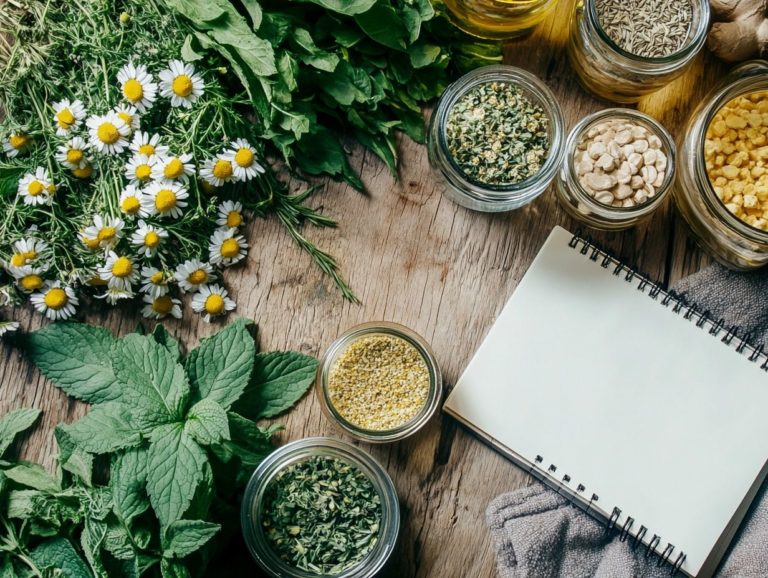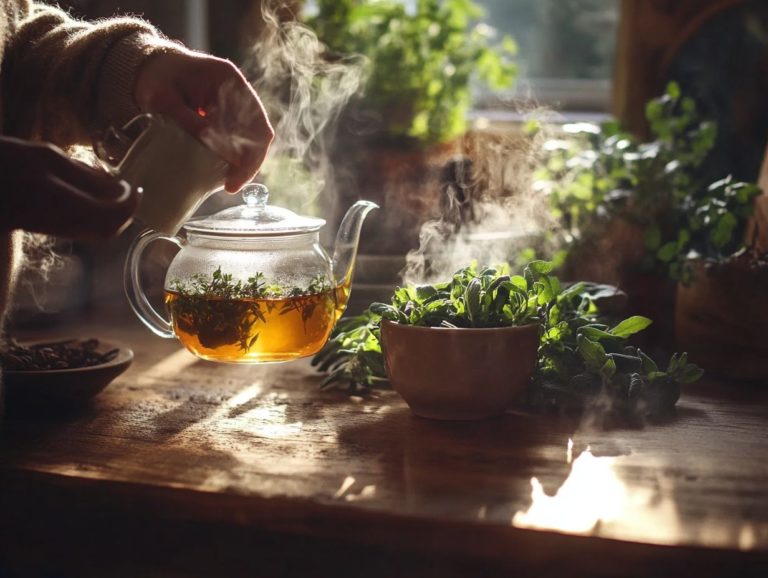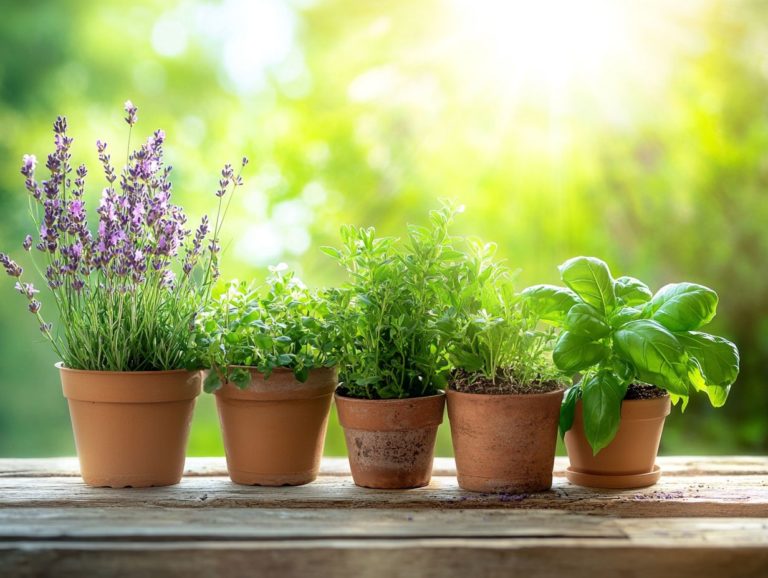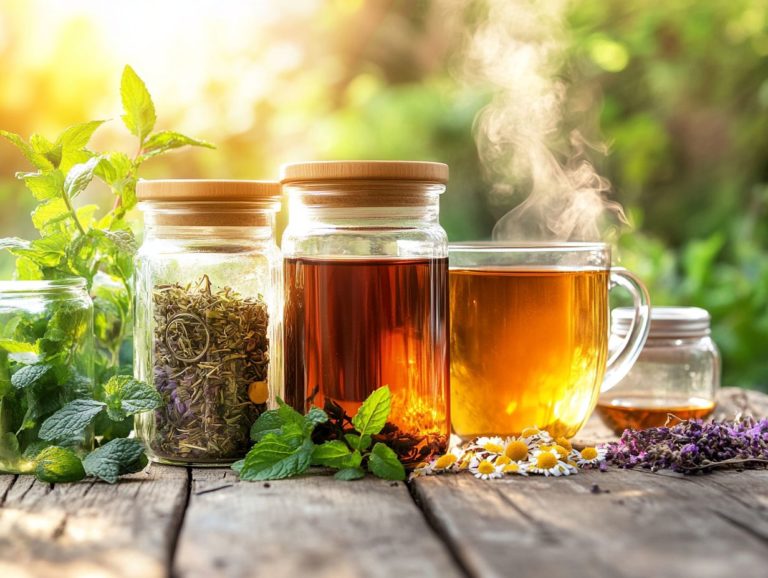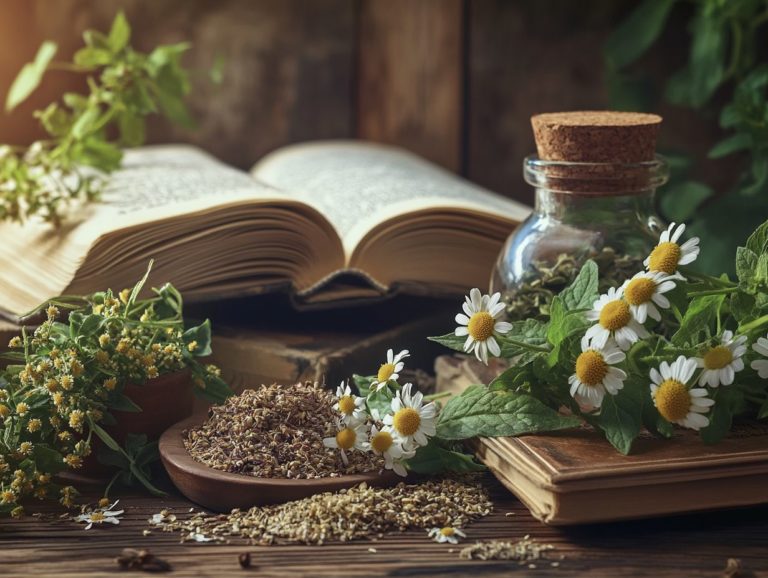Can Herbal Remedies Help with PMS Symptoms?
PMS stands for premenstrual syndrome, which can introduce a range of uncomfortable symptoms, from mood swings to physical discomfort. Many women seek effective relief from these symptoms.
While traditional treatments are available, herbal remedies have surged in popularity for their potential benefits. These remedies can help women manage symptoms as they prepare for their menstrual cycle.
This article explores common PMS symptoms such as irritability and mood swings along with their underlying causes. It also reviews various herbs that may ease discomfort and the scientific evidence backing these natural solutions.
You’ll find practical guidelines for safe usage, a discussion of possible side effects, and insights on how herbal solutions can complement other treatments.
Discover how nature might just hold the key to alleviating your PMS challenges through holistic approaches.
Contents
Key Takeaways:
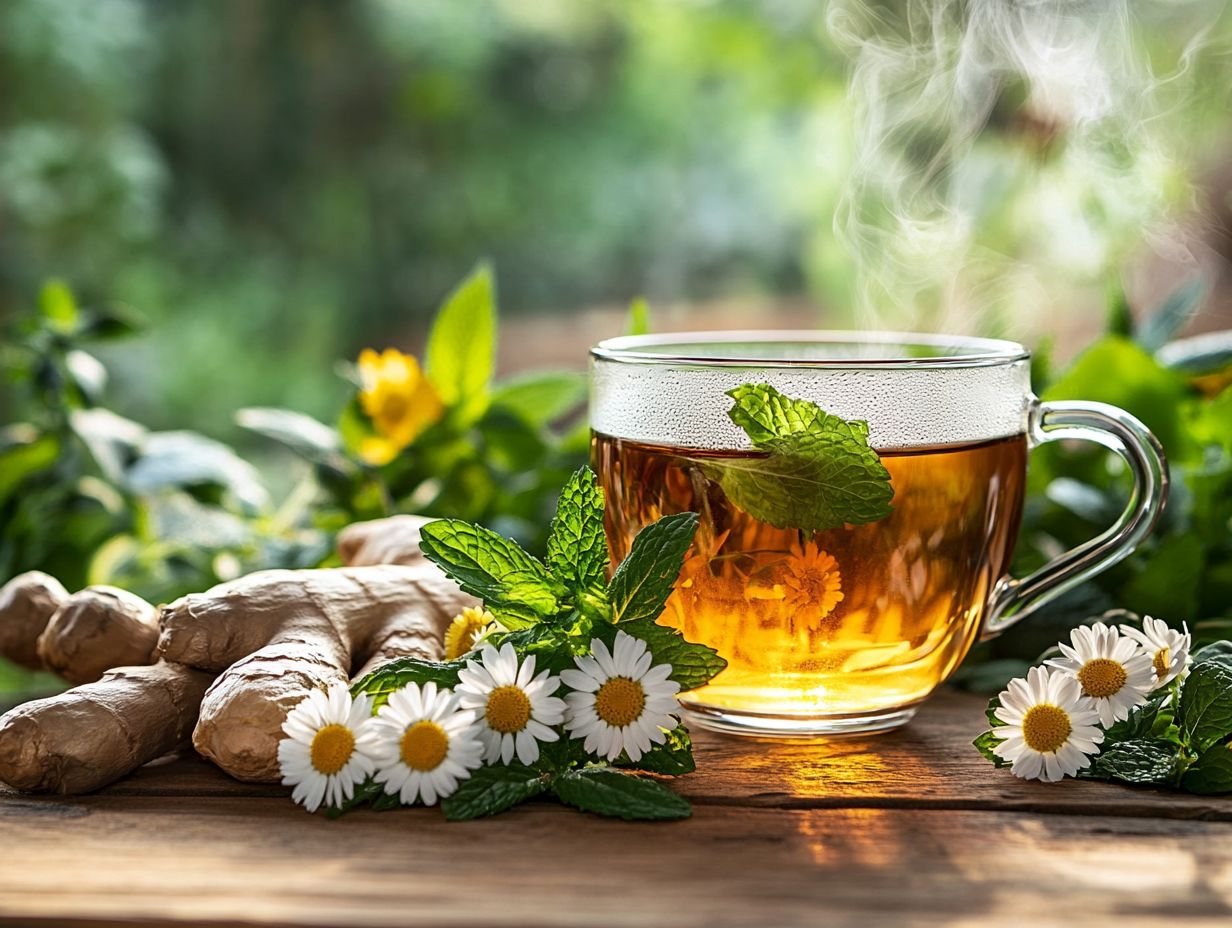
- Discover how herbal remedies might just be your new best friend in managing PMS symptoms like mood swings, cramps, and bloating.
- Research shows that certain herbs, including chamomile, ginger, and Chasteberry, can help alleviate PMS symptoms.
- When using herbal remedies for PMS, consult a healthcare provider and follow recommended guidelines for safe and effective use.
Act now to explore these herbal options your relief could be just a cup of tea away!
Understanding PMS Symptoms
Understanding the symptoms of PMS is essential for women aiming to navigate the emotional and physical challenges tied to their menstrual cycles. PMS affects many women, presenting itself through symptoms like irritability, mood swings, anxiety, and menstrual cramps.
These symptoms often relate to hormonal changes, particularly fluctuations in estrogen and progesterone. Such changes can lead to moodiness and depression. Recognizing these symptoms is the critical first step toward effective management and better women’s health.
Common Symptoms and Causes
Common symptoms of PMS can manifest in various ways. Emotional disturbances like anxiety and mood swings may occur, alongside physical discomforts such as menstrual cramps and fatigue.
These emotional fluctuations often lead to irritability and feelings of depression. They can also increase the risk of insomnia, making everyday interactions feel like challenges.
On the physical front, symptoms like breast tenderness, headaches, and digestive issues are also common during this time. These symptoms stem from hormonal imbalances and nutritional deficiencies like magnesium and Vitamin B6.
Delving into the underlying causes, hormonal fluctuations, especially those involving estrogen and progesterone, play a pivotal role in triggering these symptoms. Nutritional deficiencies, especially in vitamins like B6, calcium, and magnesium, can intensify discomfort.
Lifestyle choices, including a poor diet, insufficient exercise, and elevated stress levels, can further amplify PMS severity. This highlights the importance of dietary changes and lifestyle adjustments. Exploring holistic approaches for relief, such as herbs that help with mood swings and stress relief techniques, can help you regain balance during this challenging time.
Herbal Remedies for PMS
Herbal remedies for PMS offer a sophisticated approach to alleviating the emotional and physical symptoms women encounter before their menstrual cycles. These natural solutions include adaptogenic herbs like Chasteberry, Dong Quai, and Ginkgo Biloba, which have shown benefits in stress reduction, anxiety alleviation, and hormone regulation support.
By exploring these herbal treatments, you can discover effective alternatives for managing mood swings, irritability, and other prevalent PMS symptoms. This approach also allows for minimizing reliance on conventional medications while considering whether herbal remedies can replace prescription meds and embracing natural solutions.
Types of Herbs and Their Effects
Different types of herbal treatments offer unique benefits for PMS symptoms and are powerful solutions that can transform your comfort. Herbs like Ginkgo biloba help stabilize mood and relieve anxiety, while Black cohosh and Maca focus on alleviating physical discomfort associated with PMS.
Many women find relief with Chamomile and Cramp Bark. These herbs possess anti-inflammatory properties that ease uterine contractions and alleviate menstrual cramps. Additionally, Red Clover is celebrated for its plant compounds that can help balance hormones and reduce breast tenderness. For those experiencing fatigue, exploring whether herbal remedies can help with chronic fatigue may also be beneficial.
Each of these natural ingredients is vital for women’s health. They are valuable allies during challenging premenstrual days and contribute to overall relief from PMS. By carefully selecting the right combination, you can customize your herbal regimen, including herbal tea for hormonal balance, to effectively address both emotional and physical symptoms, ultimately promoting your overall well-being.
Evidence for the Effectiveness of Herbal Remedies
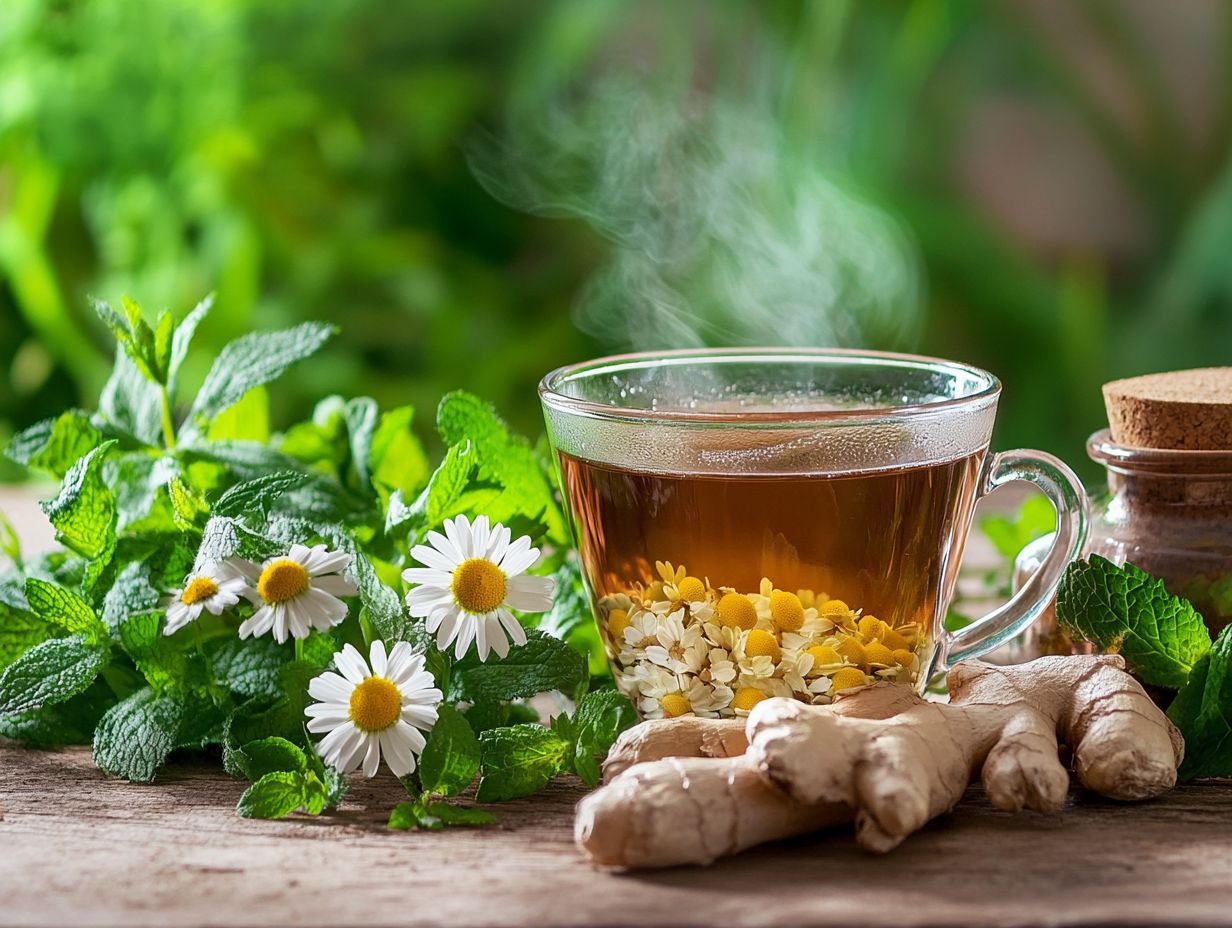
Research into the effectiveness of herbal remedies for PMS reveals encouraging outcomes. A range of natural solutions, including adaptogenic herbs, can substantially ease the symptoms linked to premenstrual syndrome.
Studies highlight the health benefits of herbs like Chasteberry, which plays a vital role in hormonal regulation. St. John s wort is celebrated for alleviating emotional symptoms such as anxiety, mood swings, and depression. These insights reinforce the notion that incorporating herbal treatments into women s health strategies presents a valuable natural alternative to traditional therapies.
Research and Studies
Numerous studies have evaluated the effectiveness of herbal remedies in managing PMS symptoms. One notable study published in the Journal of Women’s Health involved a double-blind, placebo-controlled trial assessing the impact of Chasteberry (Vitex agnus-castus) over a three-month span. Participants reported substantial reductions in emotional and physical symptoms associated with PMS, including remarkable decreases in breast tenderness, mood swings, and irritability.
Other research exploring evening primrose oil and ginger has similarly indicated positive effects. These studies showcase their potential as natural alternatives to conventional pharmaceuticals, especially for mood and anxiety relief. Additionally, you might wonder if herbal remedies can help with insomnia. The methodologies employed included self-reported symptom diaries, hormonal profiling, and assessments of lifestyle changes, yielding robust data that underscores the viability of herbal treatments for menstrual discomfort.
Using Herbal Remedies for PMS
Using herbal remedies for PMS can be highly effective, but it’s crucial to adhere to guidelines for safe and effective use. Always consult with healthcare professionals before starting any herbal treatment to ensure your approach is safe and effective.
This step allows you to navigate the intricacies of your unique symptoms and avoid potential interactions with dietary supplements, medications, or hormonal therapies you might already be using. Personalized guidance is essential for attaining the relief you desire from PMS.
Start exploring these herbal solutions today and take control of your PMS symptoms!
Guidelines for Safe and Effective Use
When using herbal remedies for premenstrual syndrome (PMS), it’s essential to consult with health professionals and understand your unique symptoms. Make lifestyle changes, including dietary adjustments and regular exercise, to significantly enhance your treatment outcomes.
Be mindful of specific dosages for herbs like Chaste tree berry, which is typically recommended at 20-40 mg daily. Always consult health professionals for personalized guidelines. Also, monitor for potential interactions with medications, such as antidepressants or hormonal therapies, especially if you have underlying health conditions.
Keeping a symptom diary can help you identify triggers and evaluate how well your remedies are working, including herbal solutions.
Incorporating practices like regular exercise, balanced nutrition that includes calcium and magnesium, and proper hydration can be pivotal in managing PMS symptoms. This approach ensures comprehensive wellness.
Potential Risks and Side Effects
While herbal remedies can offer relief from PMS symptoms, be aware of the potential risks, such as hormonal changes and interactions, along with side effects that might accompany their use.
Certain herbs could interact adversely with your medications or may not be suitable for individuals with specific health conditions, including hormonal imbalances or chronic illnesses. Understanding these risks and taking necessary precautions is vital for ensuring a safe and effective treatment experience.
Precautions and Warnings
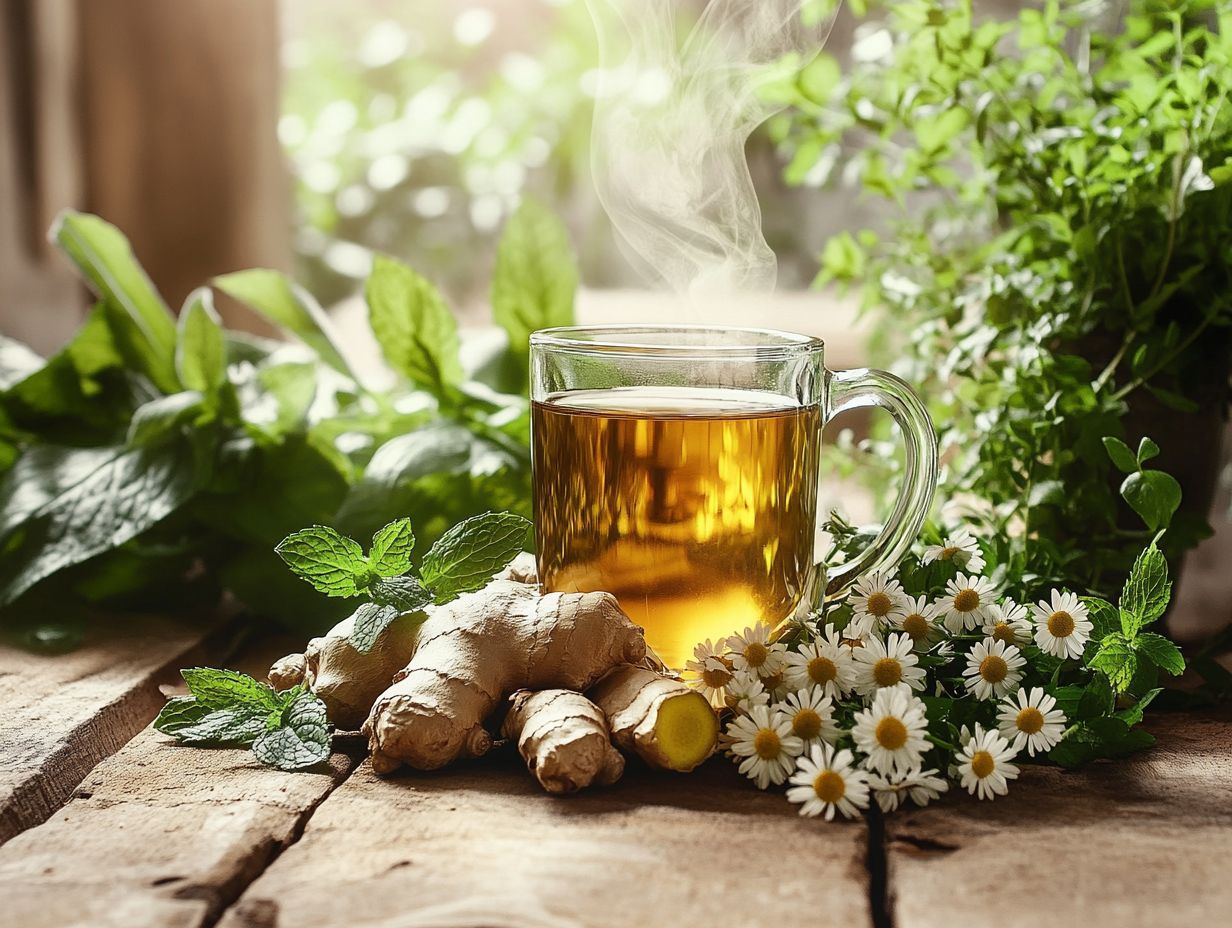
Taking precautions when using herbal remedies for PMS is essential to avoid side effects and ensure your safety, especially if you have underlying health conditions.
If you re managing chronic illnesses like diabetes or hypertension, tread carefully; some herbs could interact with your prescribed medications or worsen existing issues, particularly those related to hormonal balance. Are you pregnant or breastfeeding? Avoid certain herbal supplements, as they can impact hormonal balance or fetal development. Always consult with health professionals.
If you have sensitivities to specific plants, consult a healthcare professional before adding any new treatments to your routine. Conducting thorough research is always wise. When in doubt, reach out to a qualified practitioner for guidance.
Combining Herbal Remedies with Other Treatments
Combining herbal remedies with other treatments can significantly enhance their effectiveness in managing PMS. Incorporating dietary supplements and lifestyle changes into a comprehensive health approach is beneficial.
This holistic strategy allows for a well-rounded treatment plan that effectively addresses the multifaceted nature of PMS symptoms.
Supplements and Lifestyle Changes
Incorporating dietary supplements alongside herbal remedies can significantly enhance relief from PMS. Options like Vitamin B6, calcium, and magnesium not only target your symptoms but also offer a range of additional health benefits.
These supplements work together to alleviate symptoms by supporting hormonal balance and reducing inflammation. For example, Vitamin B6 can help regulate mood swings, while calcium may assist in mitigating bloating and cramping. Additionally, if you’re interested in natural options, you might wonder are there herbal remedies for anxiety? Magnesium is a valuable ally, promoting muscle relaxation and improving sleep quality, something that often suffers during PMS.
Along with these dietary interventions, consider adopting lifestyle changes. Regular exercise, stress management techniques like yoga or meditation, and maintaining a balanced diet rich in whole foods can further enhance the effects of your herbal treatments and promote overall well-being during this time.
Frequently Asked Questions
Can Herbal Remedies Help with PMS Symptoms?
Absolutely! Many herbal remedies can help ease PMS symptoms effectively.
What are some examples of herbal remedies for PMS?
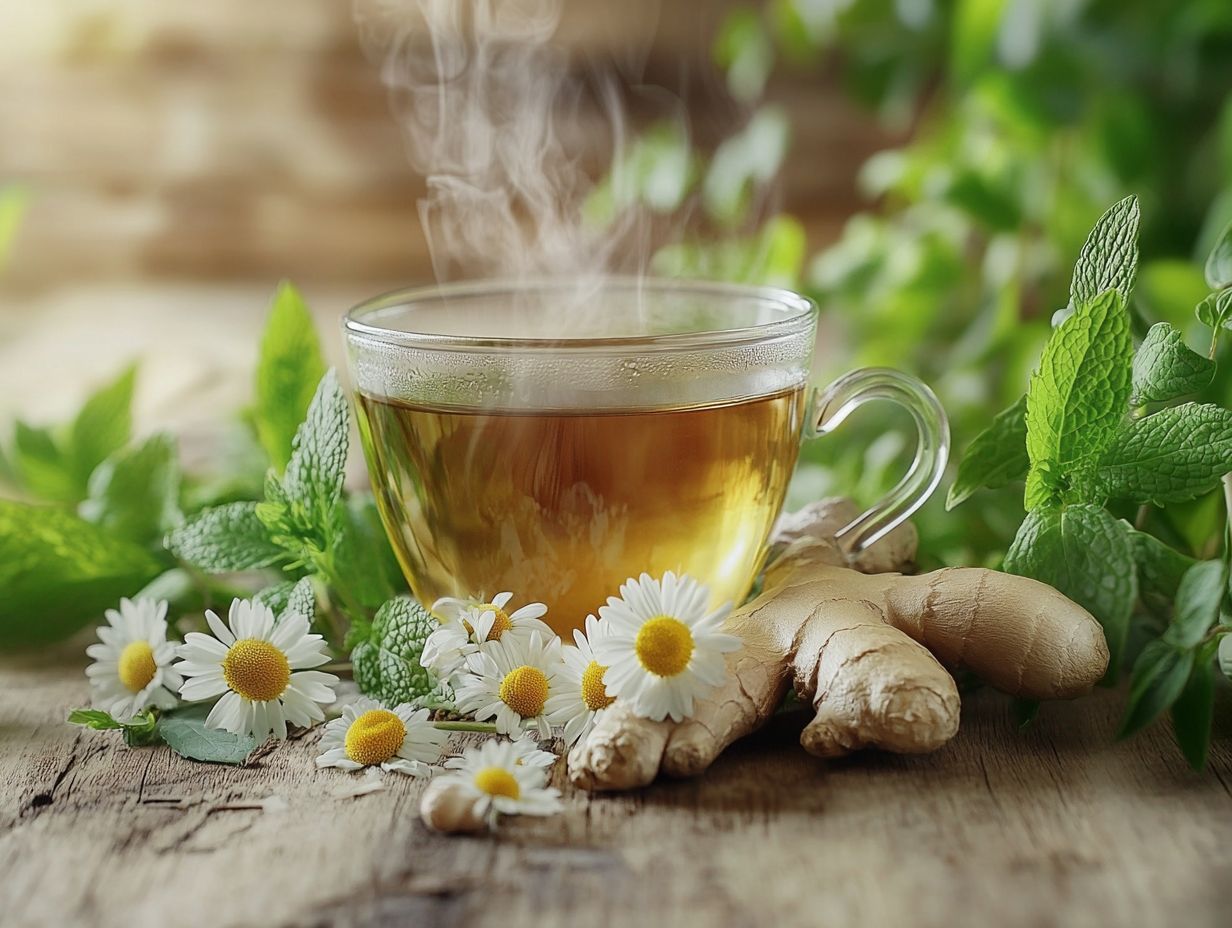
Common herbal remedies for PMS include chasteberry, evening primrose oil, and ginger.
How do these herbal remedies work?
These remedies may effectively ease PMS symptoms by balancing hormones and reducing inflammation.
Are herbal remedies safe to use for PMS?
Generally, herbal remedies are safe for PMS. Always check with a healthcare expert before starting any new treatment.
Are there any side effects of using herbal remedies for PMS?
Some remedies might cause an upset stomach, headache, or allergic reactions. Always follow dosage instructions carefully.
Can herbal remedies be used together with other treatments for PMS?
Yes, you can use herbal remedies together with other treatments like medication or lifestyle changes. Discuss any potential interactions with your healthcare professional.

